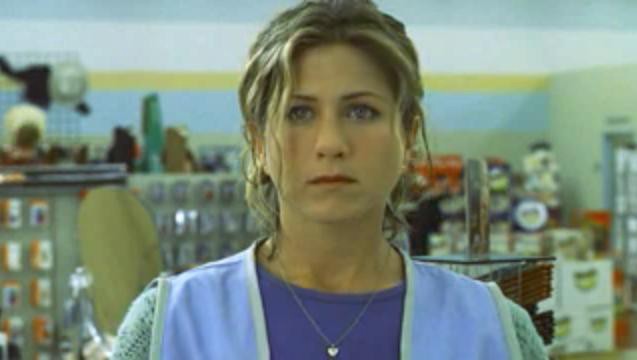Grateful for the Opportunity
by Megan Reynolds

I took my first job like many people do, fresh out of college and sick of working in a coffee shop, fetishizing the trappings of a 9-to-5 lifestyle, the desk, business cards, the quiet self-satisfaction that comes with having a cubicle and health insurance. Mostly, I was scared, and grateful that someone wanted to hire a 23-year-old with no relevant experience to do a job that was salaried and not hourly.
Work is work — we do it to pay the bills, we do it because we are grateful for the opportunity. Getting out of bed, putting on a coat and shoehorning yourself into a crowded subway train makes you feel like you’re worth something, and that is one of the best things a job can offer. Months of unemployment slowly chip away at your resolve, each day that passes without an offer, a promise, a glint of hope or potential removes another tiny brick from the wall of self-sufficiency. When an opportunity is presented, without fanfare, the instinct is to take it because who knows when another opportunity will come your way.
My father was a professor who left teaching and fell into a variety of smaller, different jobs to pay rent and raise two young girls by himself. I watched him do work that made him sad, work that made him angry, work that didn’t fall within the skillset he had worked so hard to achieve. He worked these jobs because they let him put food on the table and pay rent and raise two girls by himself. A job is a job, he told me. We need to work because we need to take care of ourselves. This attitude is my birthright.
One or two jobs in a field is a coincidence, three or four jobs in that field is a steady, and solid career. With each job I took, I found myself continuing on a career path that I didn’t really want. Every time I got a new job, it never felt like my choice, because these jobs were the only ones presented, because I had run out of money and because I needed to continue to pay rent, and work. You go on interview after interview, taking control of your life in the way you choose what you apply for, but not being able to control the outcome.
It’s a powerful and frightening thing to recognize that you want more than you have, and it’s even scarier to take the steps necessary to actually get it. For some, this is the only way they operate, and for others, it’s a fear that hovers just out of reach. It is okay to admit to yourself that you want something. It is okay to acknowledge disappointment when you don’t get what you want. When it relates to a career, choosing what you want to do is borne of privilege — the financial security that comes from a trust fund, or a parent with deep pockets, willing to let you putter around until you find the “right fit.” The eternal dilettante, skipping from career to career with no real focus can do so because there is security to fall back on.
I was offered a job that I was not excited about, another notch on the bedpost of a career that I had no interest in furthering. I was off the heels of what felt like a promising first interview in a field that I was excited about. When I was offered with the first job — but left to mull over the prospect of turning down a sure thing in the interest of not settling — I struggled. I had some money in the bank, I was okay for the next three months, but when you’ve been looking for work and have been for a while, three months is both very long and very short. After what felt like years of settling for things I didn’t want out of necessity, out of the need to continue to keep a roof over my head, I wanted to have the ability to make a choice. Then, the second job was dead in the water. I took the job offered. When the opportunity is presented, we take these opportunities, because a steady paycheck and money in the bank enables you to do better.
We can choose to be happy, holding out for the one job that meshes neatly with our interests, our skills, our talents, our intended path for ourselves. Or, we take work where we can get it, grateful to be employed. Decisions are made out of fear or out of choice. It’s easy to qualify these decision as good or bad, but the fact of the matter is that a decision is a decision, neither good or bad. We cannot predict the outcome, because no one can see the future. We just have to be willing to take the risk.
Megan Reynolds lives in New York.
Support The Billfold
The Billfold continues to exist thanks to support from our readers. Help us continue to do our work by making a monthly pledge on Patreon or a one-time-only contribution through PayPal.
Comments